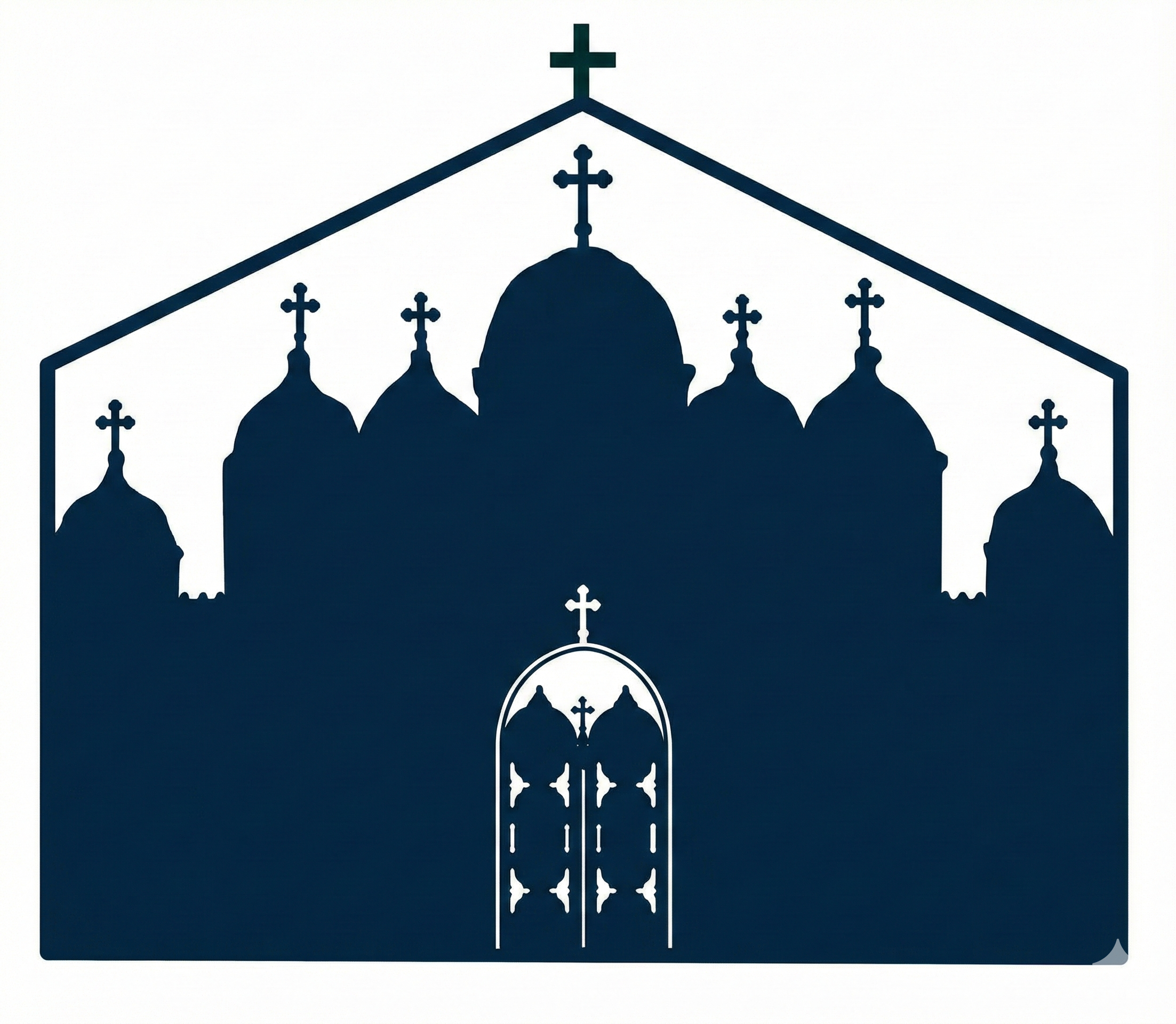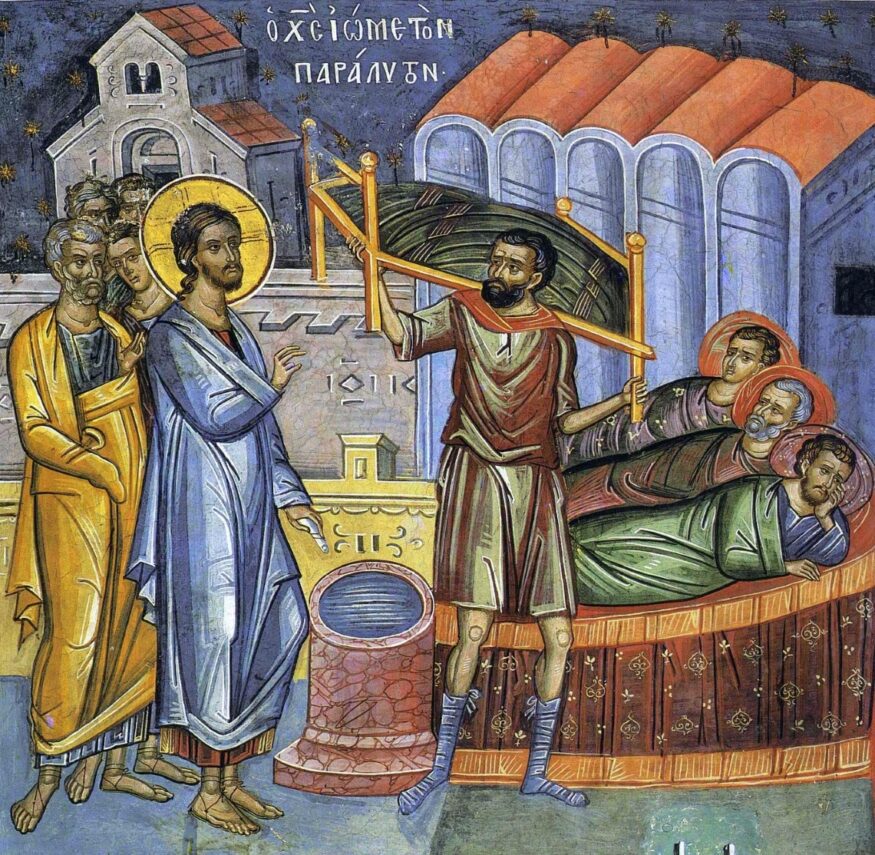Mark 2:1-12 March 16, 2025 Osaka Church
In the name of the Father, the Son, and the Holy Spirit
Look back at today’s Gospel. A paralyzed man was lying in front of them, unable to move, asking for healing, but the scribes who were present were thinking about whether the act is legally “right or wrong.”
When Jesus told the paralyzed man, “Son, your sins are forgiven,” they muttered to themselves, “Who is this man! Who can forgive sins but God?” Come to think of it, when the Lord healed a man with a withered hand and a woman who had been bent over for a long time on the Sabbath, the scribes and Pharisees first argued about the lawfulness of the matter, asking, “Is it permissible to heal a person on the Sabbath?”
For Jesus, the lawfulness of the matter was secondary. The Lord first drew near to the paralytic lying before Him, and those who could not reach out their hands or stretch their bodies. He felt their pain and suffering as His own. He became one with those who suffered. Jesus is called “Christ”, the Savior. However, we must not forget another name for Jesus. Prophesying that the Savior will soon come, Isaiah said: “The virgin will conceive and give birth to a son, and they will call him Immanuel.” “Immanuel” means that God is with us. He is always with us. And he is God. Jesus Christ, Immanuel, is with all people as “God incarnate”.
However, this is different from revolutionaries and social activists who raise their fists and say, “For the suffering of the people, the weak!” They are interested in “the people” and “the weak,” but not in “me.” They only use people when it helps them to realize their beliefs, saying, “Look at this man suffering here.” Perhaps the same is true of zealous religious preachers.
However, Christ, as the God who created everything and pours out love on all people, knows “me” far better than I know myself. He knows my pain, my suffering, my worries, more keenly and deeply than I know myself, from the deepest part of my heart. He knows not only the heart, but also the sharp pain caused by illness and injury. He is the one who was crucified on a cross with thick nails. With both body and soul, he shares the suffering of others with the entirety of his life, and even when people have grown tired and senile from sadness, he continues to appeal directly to God to understand the sorrow of humanity, and to understand “my sorrow.” When we realize that such a One is truly sharing in my suffering, in my struggles and pains, our healing begins.
The Lord healed the paralytic by telling him, “Your sins are forgiven.” The “sin” mentioned here must not be understood only as human guilt or rebellion against God. We are sinful in the way we are living this God-given “life” only as pain and suffering that attacks us and crushes us day-to-day. The very situation in which we have put ourselves in, which has made it so that we can only live in this way, is sin. The Lord told this man, “Your sins are forgiven,” saying, “You have been rescued and set free” from the abyss that he had fallen into.
To proclaim, “Your sins are forgiven,” is, as the scribes said, something only God can do.
We cannot do it. We are powerless.
But even so, there is something we can do.
The men who carried the paralyzed man on a board to the house where Jesus was preaching to the people carried him enthusiastically, but when they saw that there were too many people to get in, they climbed onto the roof, tore off the ceiling boards, and lowered the paralyzed man in front of Jesus. What they did was to bring the suffering man to Jesus, who they believed in and trusted, “We can’t do it, but He can.” We also can do this. At that moment, the paralyzed man and the people who had compassion on him and brought him to the Lord Jesus all became from a lonely “I” to a “we,” that is, they became the “Church.” God’s salvation became visible as a reality in the fellowship of the Church. As the famous “passage” of the ancient Church says, “outside the Church there is no salvation.” The “certainty of individualistic justification by faith” in itself can never be salvation.
Why not try asking that person you’re worried about, even just once, “Why don’t you come to church?”

